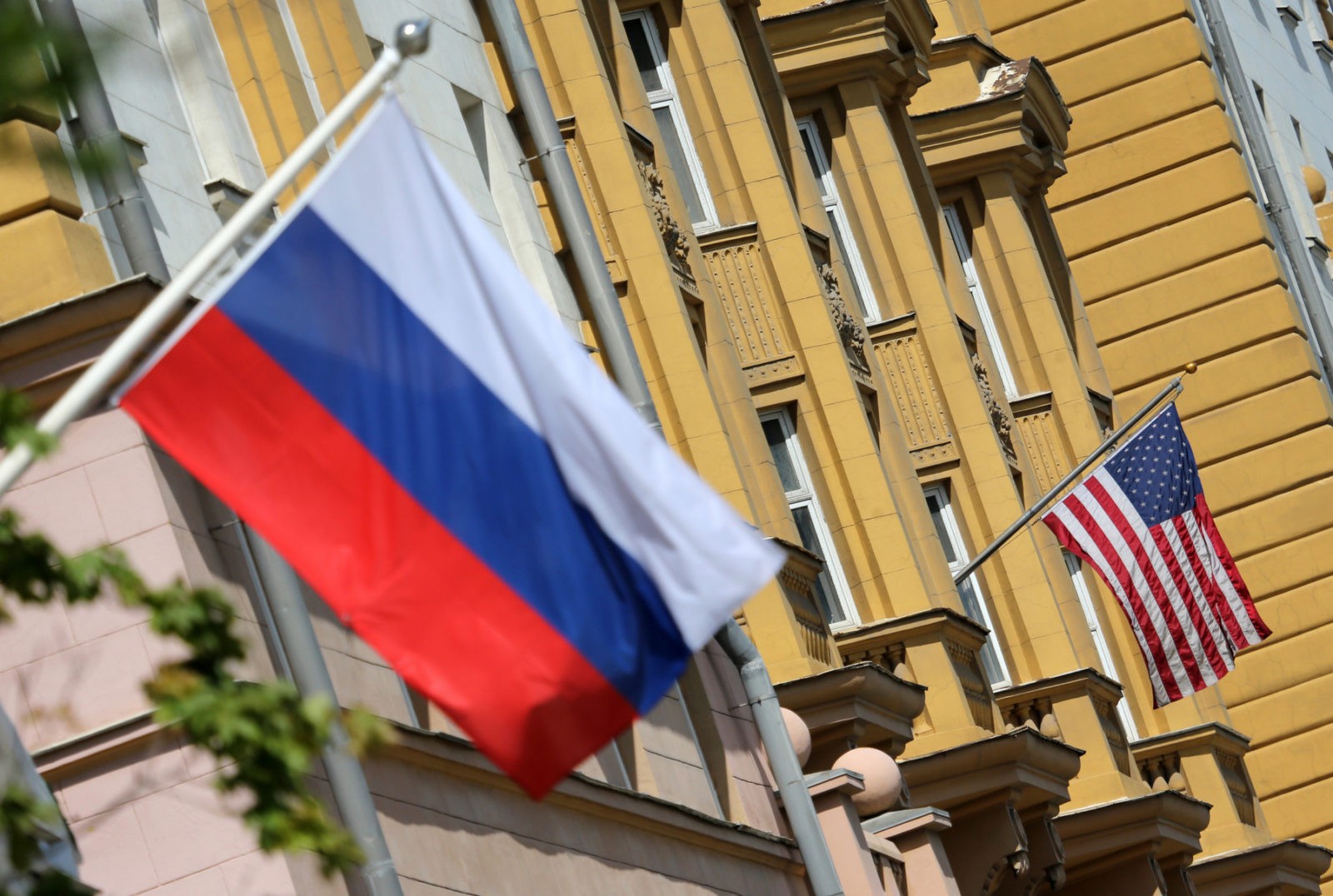The state of Russia-West relations at the present stage is marked by levels of tensions, mistrust and misunderstanding not seen since the end of Cold War. The annexation of the Crimea, the war in the east of Ukraine, the Kremlin’s information intervention in the political processes of Western countries, cyber-attacks, the spread of misinformation – all this, like many other things, led to the West and Russia today being so far apart that even imagining a possibility of rapprochement in the foreseeable future is hard. In particular, it seems the confrontation in the information sphere will have a longstanding influence on how Russians perceive the West and vice versa. At the same time, it should be recognized that in the long run Russia (not Putin’s Russia, but Russia as a country with its own national interests) is interested in normalizing relations with the West to the same extent as the West is interested in a stable partnership with Russia.
As part of a thought exercise, let us imagine that in the foreseeable future, the most positive scenario for both parties is being implemented – in Russia, Putin is being replaced by democrats, the results of the foreign policy of the previous leadership (with regards to Ukraine) are being revised, all attempts to influence public opinion abroad via construction of information agenda are halted. Generally, Russia is heading towards closer cooperation with the West. Then the question arises – will the West be ready to start from scratch and build a new type of relationship? A positive answer to this question depends on many factors – some are already overshadowing the prospect of rapprochement in the future, others will arise much later – at the time of Russia’s democratic transit.
Useful “Other”
The image of the “Other” is vital both for domestic and international politics. In the first case, the “Other” may be an opposing political party or a political force: for a Republican in the USA, for example, an intracultural “Other” will most likely be a Democrat. In the second case, we’re talking about the intercultural “Other”, which, for example, for Russia today is the United States. It is through the “Other” that is the easiest way to build and maintain a group identity. In Putin’s Russia sporadic mobilization of the electorate took place mainly against the background of anti-Western media campaigns. That is, during the artificial heightening of fear in relation to the external “Other”.
When the “Other” acquires negative characteristics in the eyes of the majority, it becomes easier to explain primarily domestically-driven problems through the influence of that “Other”. The sarcastic meme “It’s Obama’s fault” first appeared at the time of the spread of reports that some Russians blamed their own problems on the US president. (The image of “guilty Obama” is not just folk art, but a simplified modification of Russian state media propaganda message).
In response to the Kremlin’s actions, Western news media now also hold Russia as a hostile “Other”. According to one Gallup poll, 32% of Americans view Russia as America’s greatest enemy. That puts it first on the list above China (21%), North Korea (14%) and Iran (9%).
In such conditions, Russia’s reputation based on objective factors (policy towards Ukraine, Syria, attempts to interfere in the US presidential elections in 2016, etc.) begins to determine the attitude towards the country and people as a whole. Since Russia has already established itself as a violator of all sorts of rules, the next new offense – whether real or not – already fits into the existing image which makes it easier to believe in it. Even if this time it turns out that the Kremlin did not take any active measures at all. As Anton Shekhovtsov writes, adherents of victimhood culture “are not simply cautious about all things Russian; they are hypersensitive about them to the point where everything that is Russian is endowed with an inherently toxic quality”. Even the cartoon “Masha and the Bear” becomes “toxic” and is declared the “Kremlin’s soft propaganda”. Such demonization of an enemy is common during periods of tensions. But it complicates an attempt at reconciliation in the future and distracts attention from real problems today.
There is also an acute problem of interpreting publications critical of Russia in Russia itself. One thing is factually accurate publications analyzing the real crimes of the Kremlin. They are difficult to turn around in the right direction for the current Russian government. Another case is publications that, for example, are calling on the West to prepare for the disintegration of Russia. Imagine a Russian tired of economic stagnation, hiked taxes and a lack of planning. He no longer fully believes in TV propaganda (especially with regard to coverage of topics related to domestic and economic policies) and under favorable circumstances, he is capable of discarding imposed anti-Americanism. And here he reads a publication that states that “NATO should prepare contingencies for both the dangers and the opportunities that Russia’s fragmentation will present”, that “some regions could join countries such as Finland, Ukraine, China and Japan, from whom Moscow has forcefully appropriated territories in the past. Other republics in the North Caucasus, Middle Volga, Siberia and the far east could become fully independent states and forge relations with China, Japan, the U.S. and Europe”. That is, in the words of a Washington political newspaper, this Russian reader feels that he finds the confirmation of what he was told on the Russian TV political talks show all along – that the West dreams of disintegration of Russia. Words have meaning. Such words are a wonderful gift to the current Russian government and a bomb laid under the foundation of possible reconciliation in the future. The same applies to all the arguments about the “nation of slaves”, the passivity of the Russians, etc., which do not take into account the influence of situational and systemic factors and can be interpreted through a lens of xenophobia.
Let us return to the thesis that the stable negative image of the “Other” makes it possible to explain the flaws in one’s own countries not with complex explanations of the dynamics of the development of public relations, leadership mistakes, etc., but with external intervention. That is, in fact, the “Other” from time to time plays the role of a smoke screen, which allows, on the one hand, ignoring internal problems and on the other – shifting responsibility to an external actor. Saying that “Trump is the result of Russia’s interference in elections” is much easier than analyzing, for example, the role of high concentration of media capital in deepening public polarization. Of course, there was a Russian attempt at meddling, but it is not known how much it affected the outcome of the vote. For example, Brendan Nyhan, a political scientist at the University of Michigan, examining, among other things, the influence and coverage of fake news during the 2016 elections and the mid-term elections of 2018, believes that there are no reliable data that would confirm that Russia’s intervention changed the election result, since according to his data, the main visitors of the websites containing fakes were supporters of the “most conservative news diets” – that is, Trump’s potential voters, but even their media consumption basket consisted of fake news no more than 8% of the total. According to Sarah Oates, a professor at the University of Maryland, the Russian information campaign against the United States has been “helped enormously by three key factors: the weakened state of American journalism due to the lack of a robust business model, the Trump administration’s attacks on the press, and outsized fears of Moscow’s influence in an era of “fake news”. I would add that exaggerating the importance of Kremlin propaganda abroad not only distracts attention from internal factors contributing to the spread of fake content and polarization. It also creates an image of all-powerful Moscow, which benefits the Russian authorities. At the same time, of course, no one says that the problem should be ignored. Rather it must be dealt with by working with the biases of populations of all countries affected. But again, this is about work with internal “weaknesses.” The exaggeration Kremlin’s power in the information space does not help.
Several questions remain open. When and if Russia is ready to integrate into the community of democratic countries, will the West be able not to see and use it as an “Other”? Are Western media outlets ready to cultivate a more nuanced approach in creating an image of Russia as a country not only of Putin and the current Kremlin, but also of Russians?
A Tricky Transition
Even if the prerequisites for normalizing relations in the future are laid at the present stage and the Western society would be ready to accept a new democratic Russia (as the scenario assumes) without prejudice, even then many difficulties will arise at the transit stage. Among them is the legacy of Kremlin’s current information policy. For example, what happens to propagandist media designed to work with foreign audiences? If it is rather clear what to do with niche projects – to shut down and admit the guilt – what about large projects like RT and Sputnik? Given their large budgets, it would be short-sighted to demand that Russia stop broadcasting in foreign languages. An acceptable solution for both sides could be in reforming of those projects. Perhaps shifting them to focus on primarily covering Russia for the rest of the world. There could also be a rebranding, attraction of foreign capital to ownership and management, etc. A more difficult question is what to do with the journalists responsible for inciting hatred towards the West, and first of all Ukraine. How to determine the level of individual responsibility?
Then again, there will also be a question about the future of Western projects aimed at combating Russian information threat. Of course, the problem of reformatting the infrastructure built around the current information confrontation is not the most significant of the possible problems of the transit period. But it is worth thinking about in advance.
The implementation of the scenario outlined in the beginning of the article looks extremely unlikely today. First of all, Russia itself must change. But the West in this case can show greater wisdom and foresight, having managed, even in a period of conflict, not to close off preparations for a future peace.
What does the future hold for relations among Russia, Europe and the United States? This article is part of a series on future scenarios, sponsored by Riddle in cooperation with Johns Hopkins University SAIS and DGAP, supported by the Robert Bosch Stiftung.











